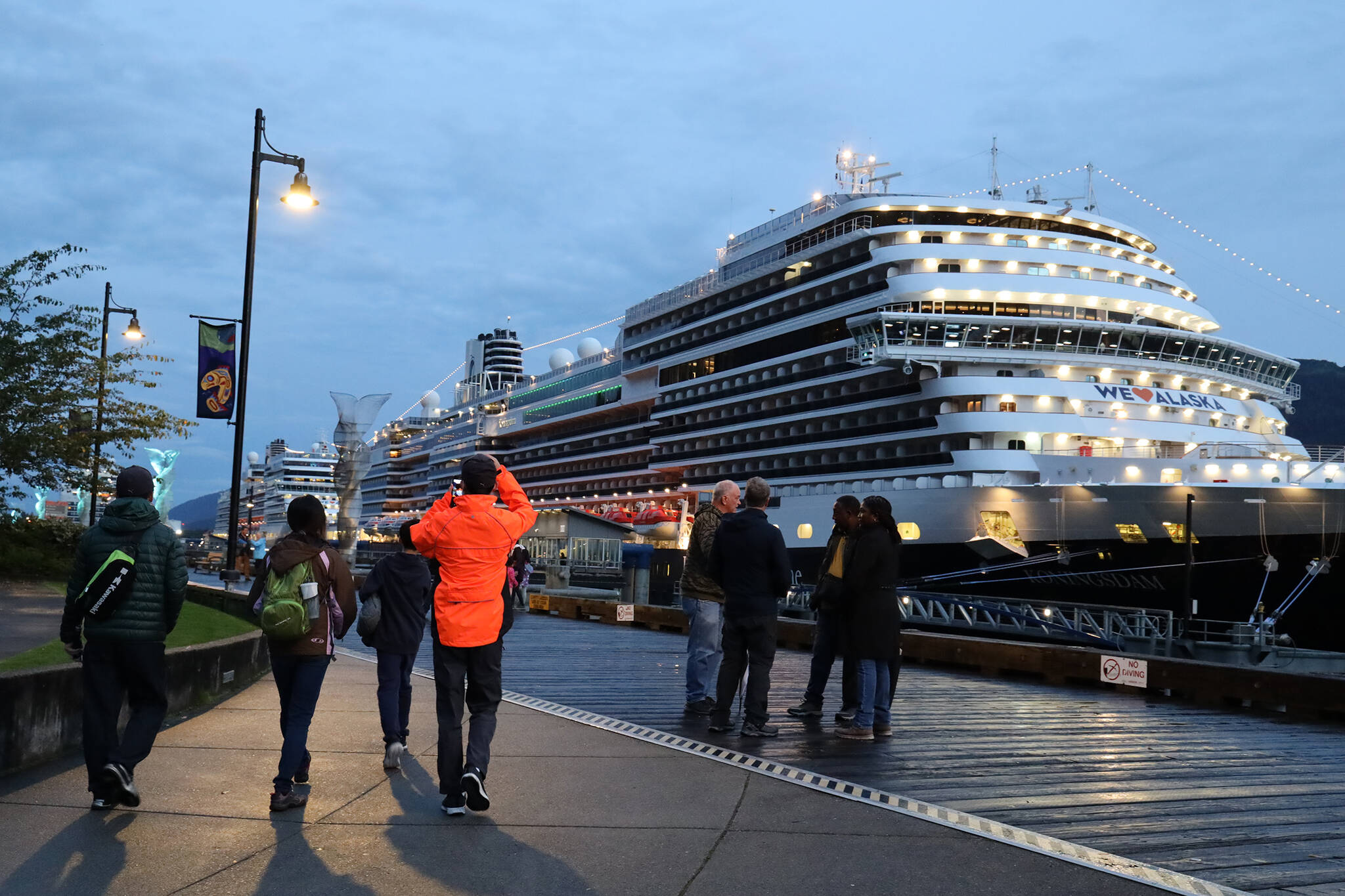An optimistic tone about climbing out of an enormous economic hole, as well as climbing to new heights in areas such as tourism and tribal activities was expressed Tuesday by many of the featured business and government leaders during the opening day of the annual Southeast Conference.
Even the weather in Ketchikan was sunny (one speaker proposed “Like California, but without the heat” as a new city motto) at the onset of the three-day conference whose agenda is dominated by panel discussions about various economic-related topics and political candidate forums for all federal and state races relevant to Southeast Alaska.
Economic topics on Tuesday included natural resources, tourism, transportation and federal infrastructure bill spending. Political forums included the three main contenders in the U.S, Senate race, and four Alaska State Legislature races (Juneau’s three districts and one for the southern part of the region), plus a discussion about the ballot measure calling for a state constitutional convention.
An overview of the region’s situation was presented after the introductory remarks in a “Southeast by the numbers” overview by Meilani Schijvens, director of Rain Coast Data. She said year-to-date economic numbers for 2022 are showing a strong ongoing rebound from the low points of the COVID-19 pandemic.
“Our economy was up by a mile,” she said. But “there’s some asterisks. Our numbers are still lagging a bit behind 2019.”
Nearly 80% of member businesses surveyed stated they have a positive outlook for the community, Schijvens said. Notably, it was smaller communities — led by Hoonah, but also including towns such as Pelican Gustavus and Yakutat — expressing the highest degree of confidence.
“That was something we have not seen for a while, so it was nice to see,” she said.
The most optimism was expressed for the tourism, food and beverage, retail, and mining industries, Schijvens said. Among those still suffering setbacks are timber and health care.
Also, impairing economic potential are shortcomings with the Alaska Marine Highway, plus lack affordable housing and ongoing worker shortage issues affecting employers nationally.
Tourism projections for the region are particularly optimistic, with hotel numbers in 2023 expected to reach 2019 levels and cruise tourism increasing yet again during a record-long season extending from April 17 to Oct. 27, Schijvens said.
“We are likely going to receive our best or our second-best year ever in 2023,” she said.
However, “I wish I can say the same for our ferry numbers” which have declined 73% percent during the past decade, although a large part of that drop occurred since the onset of the pandemic.
Also, while politicians debate whether and how much government employment has seen reductions in recent years, Schijvens said overall there isn’t a decline due to a 5% increase in tribal government workers just during the past year.
Discussions about industries relying on natural resources were considerably more mixed in their outlook, with most participants stating great potential for growth and income are facing natural and political obstacles.
The timber industry, for instance, is facing the threat of increasing climate-related disease affecting trees in the Tongass National Forest in addition to barriers the proposed reinstatement of the Roadless Rule would cause, according to Tessa Axelson, executive director of the Alaska Forest Association. Deantha Skibinski, executive director of the Alaska Miners Association, said regional industry leaders are trying to convince federal officials to conduct their first mineral vales study in the region since 1991 to better focus future projects.
The oil industry, while based in the northern part of the state, nonetheless prompted questions from attendees such as why liquid natural gas — which cruise ships will increasingly use — is being largely shipped to Asia rather than kept in-state.
“We have so much gas and it’s so expensive to develop that project that we need more customers than just 700,000 in Alaska, unfortunately,” Kara Moriarty, a spokesperson from the Alaska Oil and Gas Association, replied.
The conference will focus on issues such as energy and broadband infrastructure and host a forum of gubernatorial candidates on Wednesday, and sustainable food and resource projects and a forum of U.S. House candidates on Thursday.
• Contact reporter Mark Sabbatini can be reached at mark.sabbatini@juneauempire.com.

